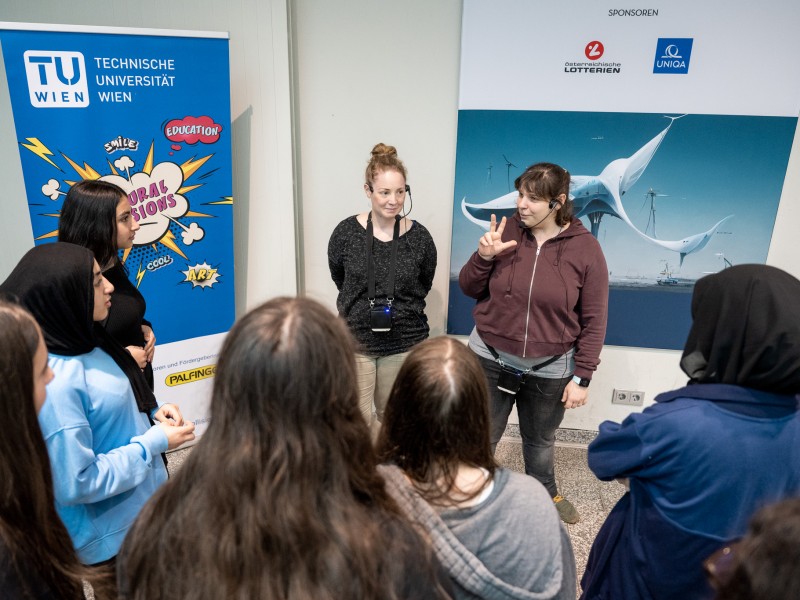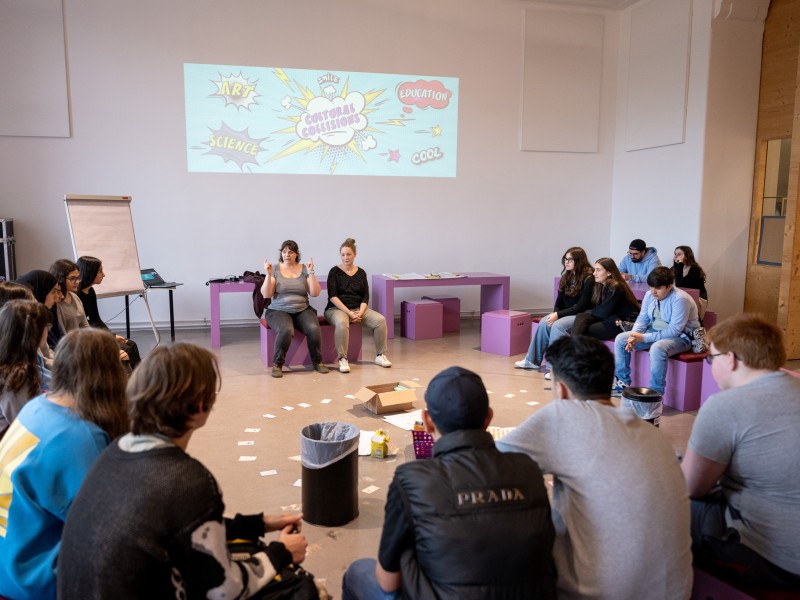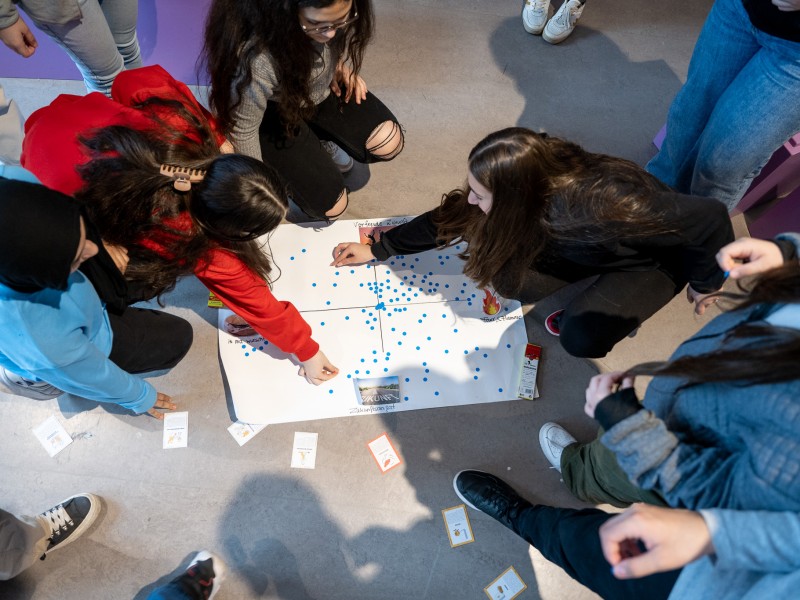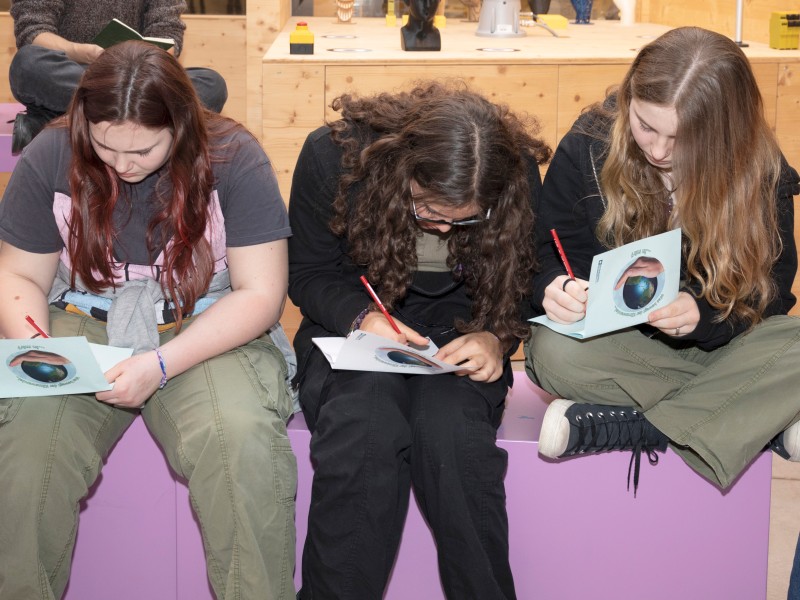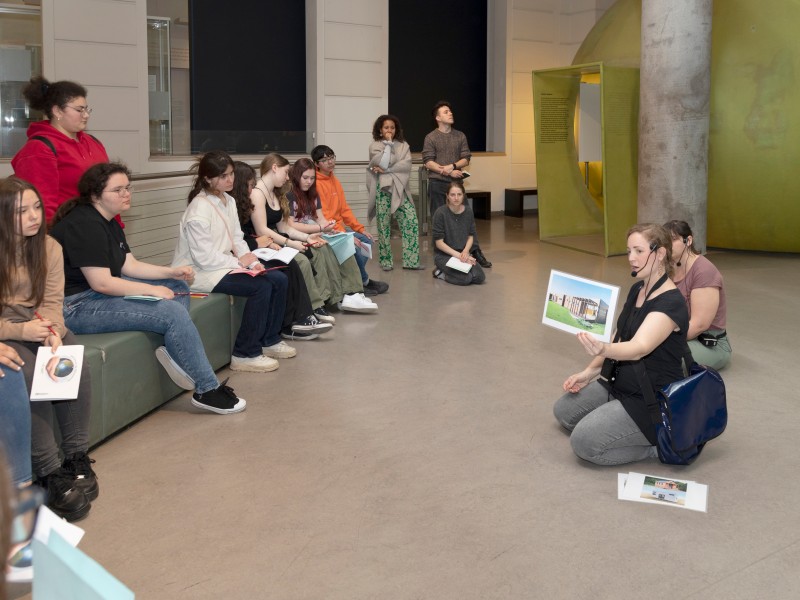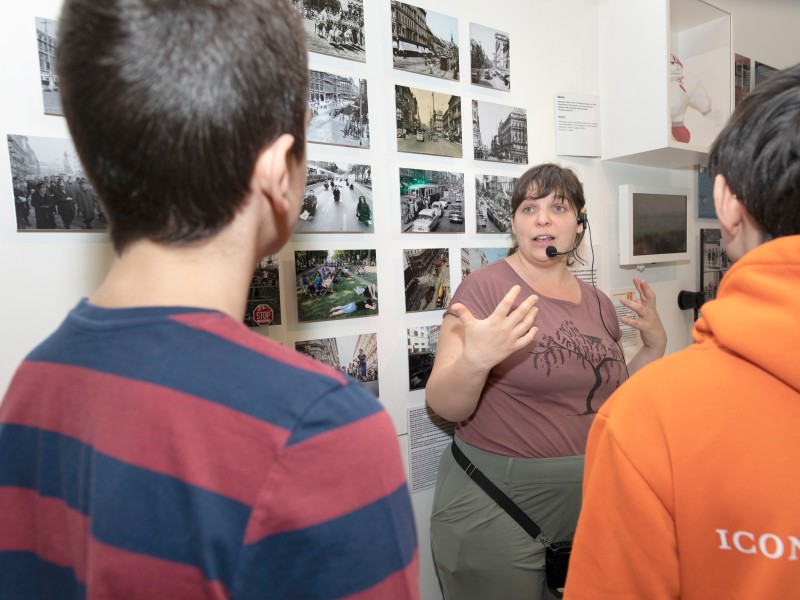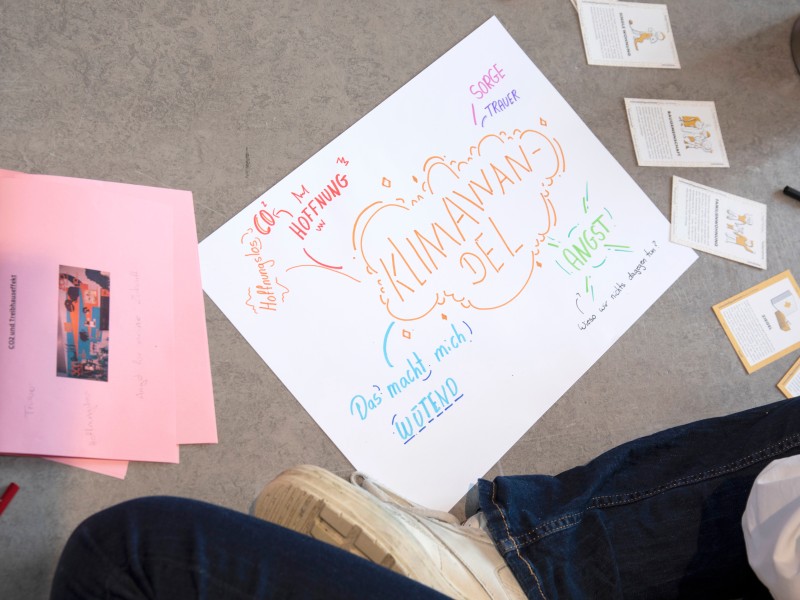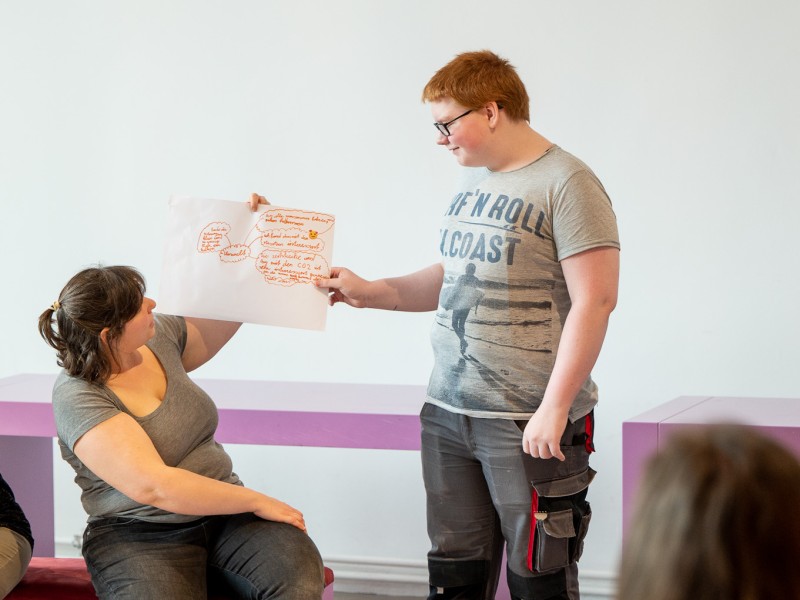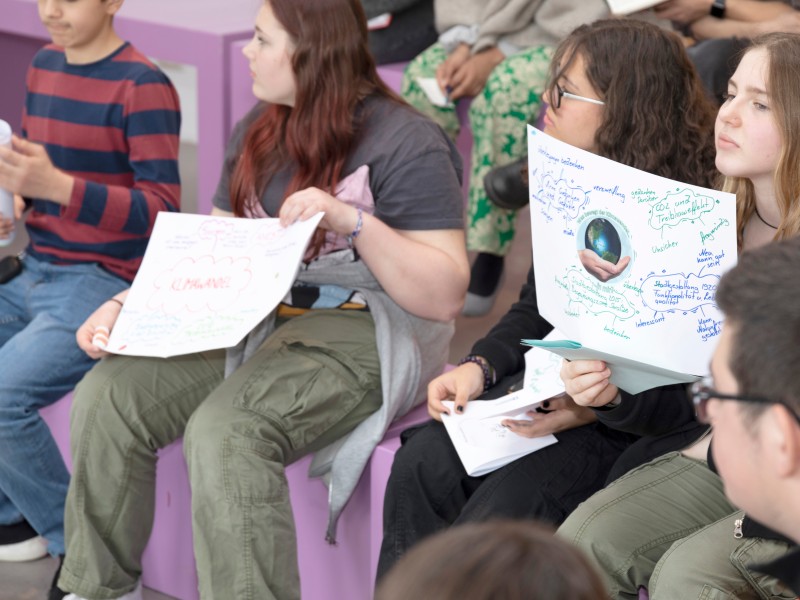This interdisciplinary and cross-institutional project gives pupils aged between 12 and 14 years the opportunity to explore the world of technology and science in an artistic way.
The internationally tested art and science education format is aimed at enabling pupils to approach the highly topical and complex issue of climate change from a scientific point of view and develop their own perspectives by taking an artistic approach. Besides participating in current social processes, the pupils will experience technical study programmes and professional fields first-hand, providing them with early inspiration for their later choice of studies.The starting point for the participating classes is a visit to an interdisciplinary exhibition that is implemented by students, scientists and artists of the TU Wien (Vienna University of Technology) as part of a seminar. With this inspiration, the classes will develop a work of art on the topic together with their teachers. They will be supported in doing so by the mumok – Museum moderner Kunst Stiftung Ludwig Wien (Museum of Modern Art Ludwig Foundation Vienna) and the Technisches Museum Wien (Vienna Museum of Science and Technology), which will each be hosting an art, culture and science education workshop for them. The results will be presented at the end of the semester in a public exhibition at the mumok.
The multi-year project will be supervised and continuously evaluated by the Kirchliche Pädagogische Hochschule Wien/Krems (University College of Christian Churches of Teacher Education Vienna/Krems). Furthermore, the Pädagogische Hochschule Wien (University College Teacher Education Vienna) will develop materials for teachers so that they can incorporate this methodology into their lessons.
Cultural Collisions is a collaboration project between the TU Wien, the Kirchliche Pädagogische Hochschule Wien/Krems, the Pädagogische Hochschule Wien, the mumok – Museum moderner Kunst Stiftung Ludwig Wien as well as the Technisches Museum Wien.


